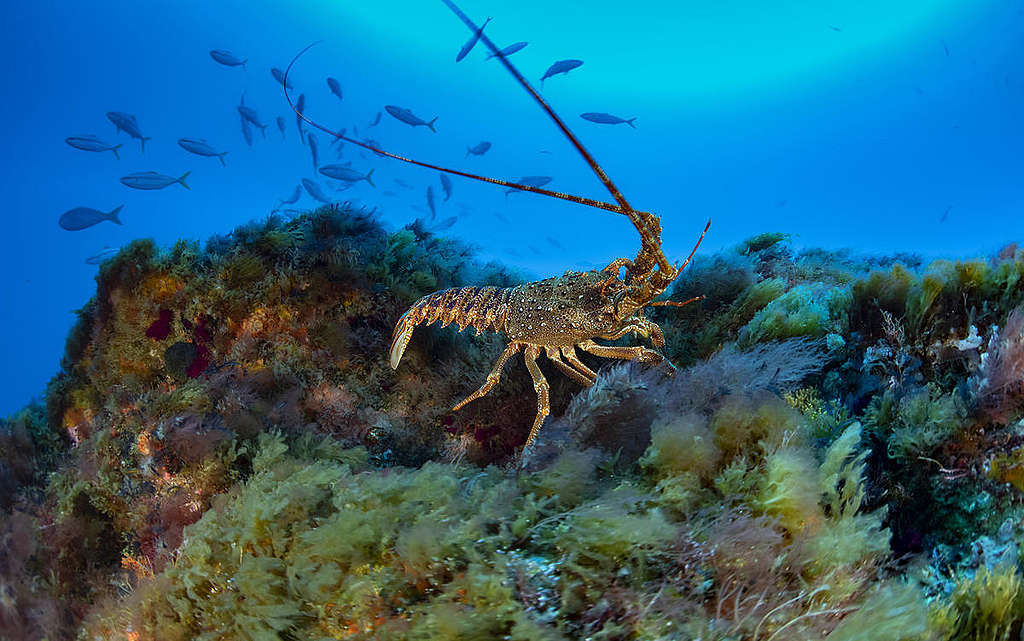Close your eyes. Imagine yourself standing on a sandy beach listening to the sounds of the ocean as the waves are washing in. It’s magic isn’t it? Indeed, it’s paradise.
Now imagine opening your eyes and being able to look under the surface of the beautiful blue ocean. Just for a split second, imagine seeing the full extent of the many consequences of the major threats to ocean health like pollution, overfishing, illegal fishing, eutrophication, the climate crisis, and even plastic pollution. Most of which is normally hidden underneath the surface, leaving us to almost only see the beauty of our oceans, and not what is needed to sustain them. When we truly consider the pressure on our oceans, all of a sudden, the magic is lost.
Today, on International Women’s Day, we are celebrating the many women all over the globe tirelessly fighting to bring back and preserve this magic and the social stability and food security it provides.
Globally, one billion people rely on fish as their main source of animal protein, according to the UN World Health Organization (WHO). In some small island states, people meet their protein needs exclusively from seafood.
In a country like Senegal in West Africa for instance, fish cover 70% of the population’s animal protein intake. For years, women in the West African region, alongside small-scale fishermen, have been pushing back on a booming fishmeal and fish oil (FMFO) industry and an unknown number of destructive foreign fishing vessels taking away the fish, which the local communities depend on. FMFO factories, mainly owned by investors outside Africa, are responsible for overfishing already dwindling fish stocks in West Africa, and must be held accountable. In recent years this industry overexploited hundreds thousands of tonnes of fresh fish perfectly fit for human consumption and turned them into FMFO. Most is exported to Asia and Europe to feed the aquaculture industry, livestocks, pets, or to be used in Omega-3 fish oil products for human consumption.
Sadly, the price for this overexploitation is paid by local communities who are struggling to feed themselves and make a living, as FMFO factories consume an enormous amount of fish.
Sadly, the price for this overexploitation is paid by local communities who are struggling to feed themselves and make a living, as FMFO factories consume an enormous amount of fish. As an example, just one of the tankers regularly departing from West Africa, filled with fish oil and with a capacity of 3,933 m3, requires 70,000 tonnes of fresh fish. This is the equivalent of the annual consumption of over 2.5 million people in a country like Senegal.
“Women in West Africa are playing an important role in ensuring food security for communities all over the region. We need the West African governments to put measures in place to secure food security for their populations instead of enriching the FMFO industry. One of these measures is to grant women a legal status that will enable them to continue their work, which is helping to feed families and sending children to school,” said Prudence Wanko, Country Coordinator of Greenpeace Africa in Senegal.
We need to stop wrecking our oceans now.
Join us today on International Women’s Day in saying “THANK YOU” to the women fighting to protect our ocean and food security. We do this through a global online applause. We do it because their fight is imperative for the future of our oceans and the future of us all.
Click here to see how you can take part.
This blog was written by Prudence Wanko Djiodio, Country Coordinator of Greenpeace Africa in Senegal, Melita Steele, Interim Programme Director of Greenpeace Africa, and Jennifer Morgan, Executive Director of Greenpeace International
 Get Involved
Get Involved
